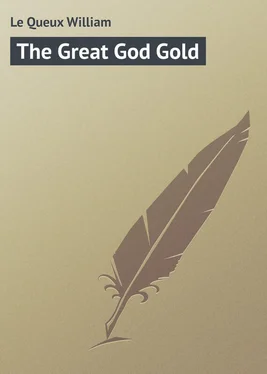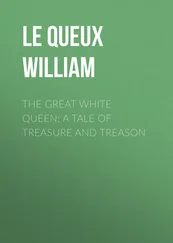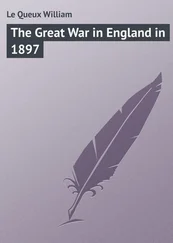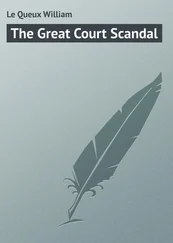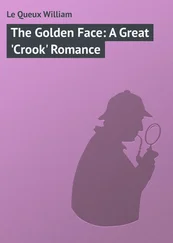William Le Queux - The Great God Gold
Здесь есть возможность читать онлайн «William Le Queux - The Great God Gold» — ознакомительный отрывок электронной книги совершенно бесплатно, а после прочтения отрывка купить полную версию. В некоторых случаях можно слушать аудио, скачать через торрент в формате fb2 и присутствует краткое содержание. Жанр: foreign_prose, на английском языке. Описание произведения, (предисловие) а так же отзывы посетителей доступны на портале библиотеки ЛибКат.
- Название:The Great God Gold
- Автор:
- Жанр:
- Год:неизвестен
- ISBN:нет данных
- Рейтинг книги:5 / 5. Голосов: 1
-
Избранное:Добавить в избранное
- Отзывы:
-
Ваша оценка:
- 100
- 1
- 2
- 3
- 4
- 5
The Great God Gold: краткое содержание, описание и аннотация
Предлагаем к чтению аннотацию, описание, краткое содержание или предисловие (зависит от того, что написал сам автор книги «The Great God Gold»). Если вы не нашли необходимую информацию о книге — напишите в комментариях, мы постараемся отыскать её.
The Great God Gold — читать онлайн ознакомительный отрывок
Ниже представлен текст книги, разбитый по страницам. Система сохранения места последней прочитанной страницы, позволяет с удобством читать онлайн бесплатно книгу «The Great God Gold», без необходимости каждый раз заново искать на чём Вы остановились. Поставьте закладку, и сможете в любой момент перейти на страницу, на которой закончили чтение.
Интервал:
Закладка:
That night, after Frank had left and Gwen had kissed him good-night and gone to her room, he sat for over an hour, smoking his long pipe in silence at his study fireside. He had resolved that he would be the first to reveal the startling secret to the world. Yes. He would write an article in the Contemporary , and he knew full well that words, coming from such a high authority as himself, would be quoted by almost every newspaper in the whole civilised globe.
It was astounding – never before in the whole history of the world had such a wonderful discovery been made. The Christian religion would be shaken to its very foundations – not weakened, be it said, but actually strengthened a thousandfold.
He laughed aloud as he sat with his pipe in his hand, his eyes cast down upon the bright red hearthrug.
“What would the Bishops of the Anglican Church, the Cardinals of the Romish Church, the Rabbis of the Jewish Synagogues and all the other heads of our religion give for possession of this secret which is mine – mine only!” he exclaimed, speaking to himself in a low whisper. “What would men in the city, the financiers, speculators, and the thousand-and-one varieties of money ‘sharks’ give me to reveal the truth to them. The truth?” he repeated thoughtfully. “The truth? No. I have not yet got at the actual truth. To discover it will be my work to-morrow. And I will not pause for a single instant until all is plain, and I have the secret open and revealed.”
Again he hesitated, smoking on in silence, his brow heavy and thoughtful, for he had taken off his glasses and placed them in their big, bulky case.
“Two men, this fellow Diamond, whoever he may be, and Frank Farquhar stand between myself and the secret!” he muttered to himself with a grin. Then he rose impatiently and snapped his fingers. “They shall not stand in my way for long,” he laughed. “The secret is mine – it is in my possession!”
The Professor rose early next day, as was his habit.
As he sat at the breakfast table, Gwen who looked bright and fresh in her neat white blouse and plain navy serge skirt, noticed that he was unusually silent and morose. They were devoted to each other, but at such times when her father, rendered irritable by his studies, betrayed impatience she always remained silent.
“I’ve asked Frank over to luncheon, dad,” she ventured at last to remark.
Whereupon the old man replied in a snappy voice: “I fear I shall not be bade. I’m going along to the Museum, and may be there all day. I have a number of researches to make. Apologise for my absence.”
Gwen promised to do this; but instead, an hour later, she sent her lover a wire, suggesting that, as the Professor would be absent, they should lunch together at Princes’, which idea the young man gladly adopted.
At eleven Professor Griffin, descending from a cab, entered a small office in Oxford Street, the office of a firm of photographers whose specialty is the reproducing of ancient documents for the official publications of the British Museum, the Paleographical Society and similar institutions. To the manager, he produced the carefully preserved scraps of typewriting and manuscript, and ordered photographic reproductions to be made with as great a speed as possible.
The manager examined the charred folios closely, and declared that the work would be useless for reproduction in any journal or magazine.
“I don’t want them for that purpose,” was Griffin’s reply.
“We’ll do them as clearly as possible on whole plates, Professor,” was the man’s reply, “but they will not come out very satisfactorily, I fear.”
“As long as I can decipher them easily is all I care,” replied the older man. “I shall call for the originals at four o’clock.”
“We will have finished with them by that time, sir. I will send them down to the studio at Acton.”
“And take the utmost care of them please,” urged the Professor.
“We are used, as you know, sir, to handling the most valuable manuscripts in the world. The Museum give us all their work, and we often have, in our safes, manuscripts worth thousands of pounds each,” replied the manager.
A sudden thought occurred to Griffin, and taking from the table the scrap of writing upon the ruled paper, he held it up to the light to examine its watermark. The design was at once apparent – the head of a lady of the seventeenth century with hair dressed in the style of Charles the First, low-cut bodice, puffed sleeves, and a necklet of pearls, while above the words placed in a semi-circle was “Sevigne Paper.”
“H’m,” grunted the old man, “evidently one of those imitation English papers, made in France. Well, Macdonald, get as good results as you can from the scraps, won’t you?”
The photographer’s manager, who knew Griffin well, and who had often photographed Hebrew and Greek manuscripts for him, assured him that the very greatest care should be taken in the work.
Thereupon, the Professor rose and left, urging that the originals should be returned from Acton well before four o’clock.
In his thick and somewhat shabby overcoat and soft felt hat, he walked through the drizzling rain to the British Museum, where, as he entered, the attendants saluted him. In that national institution he was a well-known figure, for during the greater part of his lifetime he had studied there, especially in the Department of Manuscripts.
It was to that he at once made his way. The Keeper of the Department was absent, but a man of Professor Griffin’s reputation has the “run of the place;” therefore after wishing good-day to one of the assistant-keepers he began searching the catalogue of manuscripts for the Hebrew ones which he wished to consult, writing their numbers upon a slip. This he handed to the assistant-keeper who, having glanced at the numbers and recognised to which they referred, regarded him with a glance of quick curiosity.
“One of the earliest originals of the Book of Ezekiel – eh, Professor?” remarked the man. “And the other is the Muratori Manuscript.”
“Exactly,” was Griffin’s reply, and when the man had left the little room in which he was standing, he drew from his pocket a small book in which overnight he had made pencilled memoranda from the half-confused fragments which Frank had placed before him. Then he waited in undisguised anxiety.
Presently the assistant-keeper returned with two of the most important Biblical manuscripts the Museum possessed, and placed them before the man whose opinion upon Hebrew originals of Holy Writ was always decisive.
The first manuscript, one of the earliest originals of the Book of Ezekiel and one used by the revisers of the Bible a few years ago, was upon yellow and discoloured parchment of great age, bound in old calf of the early sixteenth century. The binding had practically perished, but the writing within was still plain and quite decipherable to an expert.
Originally written upon a long roll, it had in later times been cut into folios and bound, as being readier of access, and easier to consult. Of its early history from the time of being written until A.D. 1421, practically nothing was known. In the year in question it was brought to Constantinople from Palestine, and in 1627 was given by the Patriarch to Charles the First.
The Professor removed his hat and overcoat seated himself, and with reverent fingers turned the time-dimmed pages from which a portion of our Holy Bible had been translated.
To the person unacquainted with early Hebrew script the pages were covered by meaningless hieroglyphics; but to him they were as clear as any printed column in the Times newspaper.
He searched through until he discovered a certain passage. Then, eagerly consulting his notebook, he began translating it, word for word, writing down the English equivalent upon the paper that had been placed before him.
Читать дальшеИнтервал:
Закладка:
Похожие книги на «The Great God Gold»
Представляем Вашему вниманию похожие книги на «The Great God Gold» списком для выбора. Мы отобрали схожую по названию и смыслу литературу в надежде предоставить читателям больше вариантов отыскать новые, интересные, ещё непрочитанные произведения.
Обсуждение, отзывы о книге «The Great God Gold» и просто собственные мнения читателей. Оставьте ваши комментарии, напишите, что Вы думаете о произведении, его смысле или главных героях. Укажите что конкретно понравилось, а что нет, и почему Вы так считаете.
